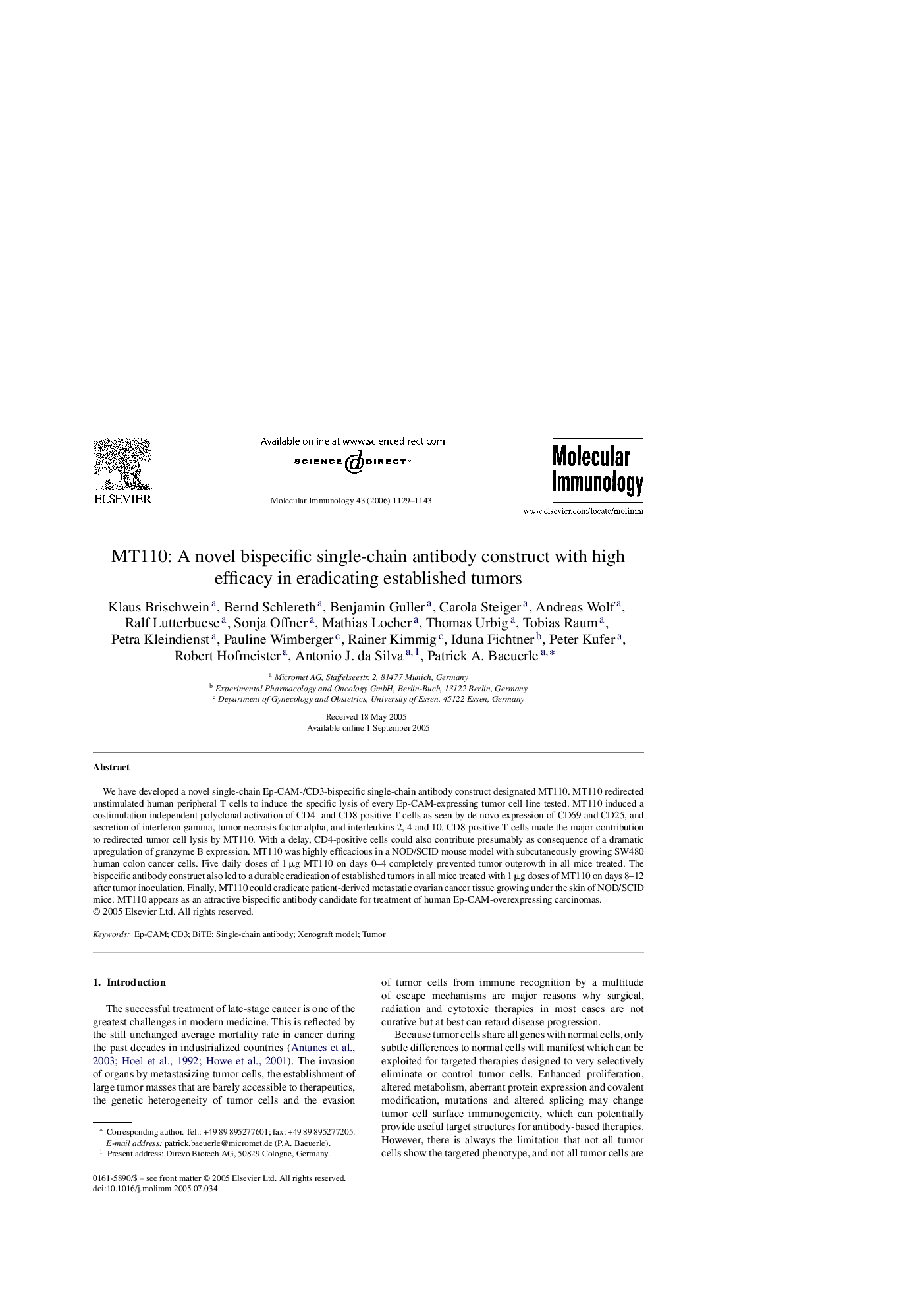| Article ID | Journal | Published Year | Pages | File Type |
|---|---|---|---|---|
| 2833040 | Molecular Immunology | 2006 | 15 Pages |
We have developed a novel single-chain Ep-CAM-/CD3-bispecific single-chain antibody construct designated MT110. MT110 redirected unstimulated human peripheral T cells to induce the specific lysis of every Ep-CAM-expressing tumor cell line tested. MT110 induced a costimulation independent polyclonal activation of CD4- and CD8-positive T cells as seen by de novo expression of CD69 and CD25, and secretion of interferon gamma, tumor necrosis factor alpha, and interleukins 2, 4 and 10. CD8-positive T cells made the major contribution to redirected tumor cell lysis by MT110. With a delay, CD4-positive cells could also contribute presumably as consequence of a dramatic upregulation of granzyme B expression. MT110 was highly efficacious in a NOD/SCID mouse model with subcutaneously growing SW480 human colon cancer cells. Five daily doses of 1 μg MT110 on days 0–4 completely prevented tumor outgrowth in all mice treated. The bispecific antibody construct also led to a durable eradication of established tumors in all mice treated with 1 μg doses of MT110 on days 8–12 after tumor inoculation. Finally, MT110 could eradicate patient-derived metastatic ovarian cancer tissue growing under the skin of NOD/SCID mice. MT110 appears as an attractive bispecific antibody candidate for treatment of human Ep-CAM-overexpressing carcinomas.
